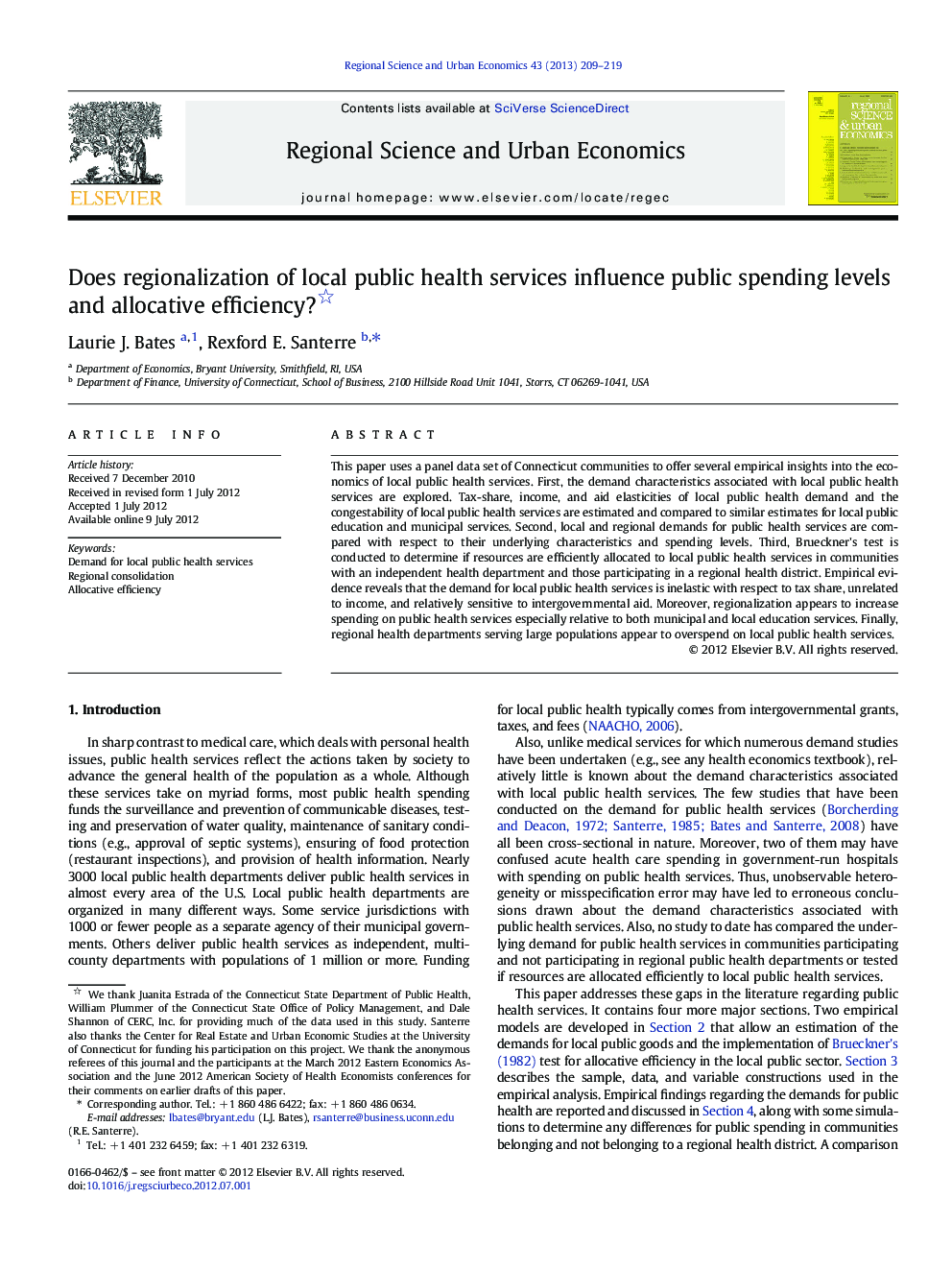| Article ID | Journal | Published Year | Pages | File Type |
|---|---|---|---|---|
| 983960 | Regional Science and Urban Economics | 2013 | 11 Pages |
This paper uses a panel data set of Connecticut communities to offer several empirical insights into the economics of local public health services. First, the demand characteristics associated with local public health services are explored. Tax-share, income, and aid elasticities of local public health demand and the congestability of local public health services are estimated and compared to similar estimates for local public education and municipal services. Second, local and regional demands for public health services are compared with respect to their underlying characteristics and spending levels. Third, Brueckner's test is conducted to determine if resources are efficiently allocated to local public health services in communities with an independent health department and those participating in a regional health district. Empirical evidence reveals that the demand for local public health services is inelastic with respect to tax share, unrelated to income, and relatively sensitive to intergovernmental aid. Moreover, regionalization appears to increase spending on public health services especially relative to both municipal and local education services. Finally, regional health departments serving large populations appear to overspend on local public health services.
► Estimates the demand for public health services across Connecticut communities. ► Compares demands for public health in independent and regional health districts. ► Analyzes the efficiency of public health services in both types of health districts. ► Finds demand is price inelastic, unrelated to income, and sensitive to external aid. ► Large regional districts increase public health spending and lessen efficiency.
